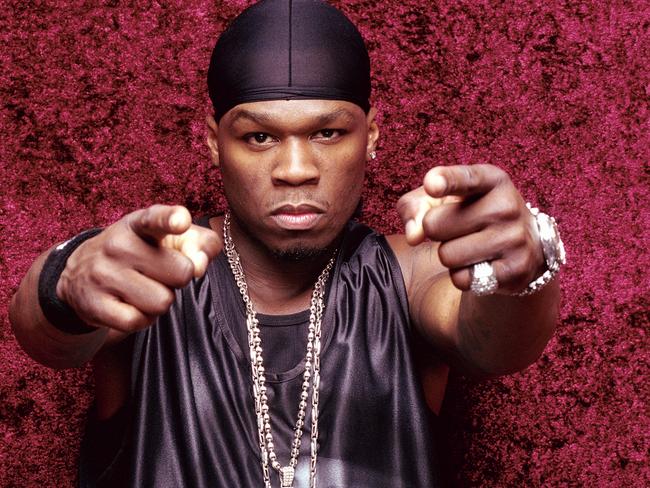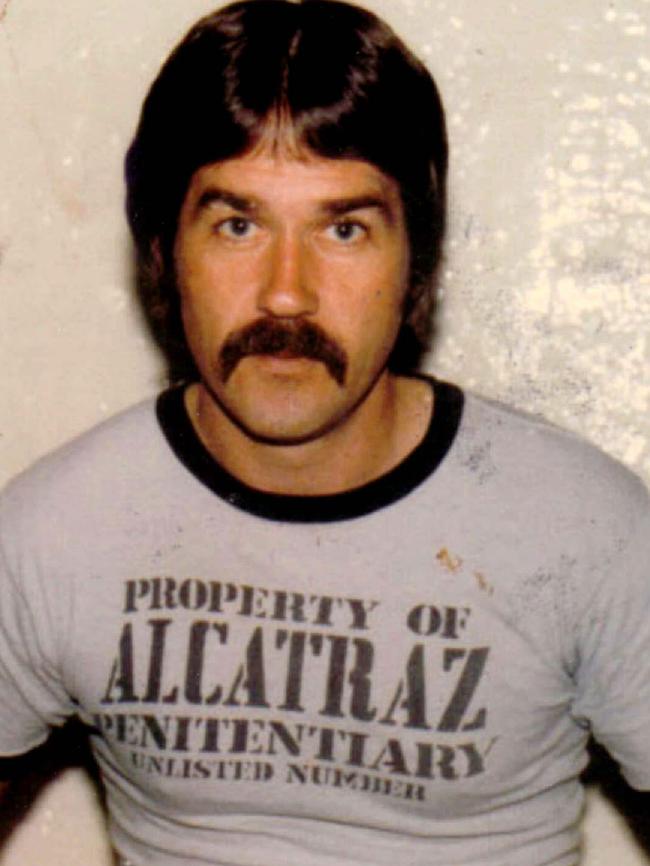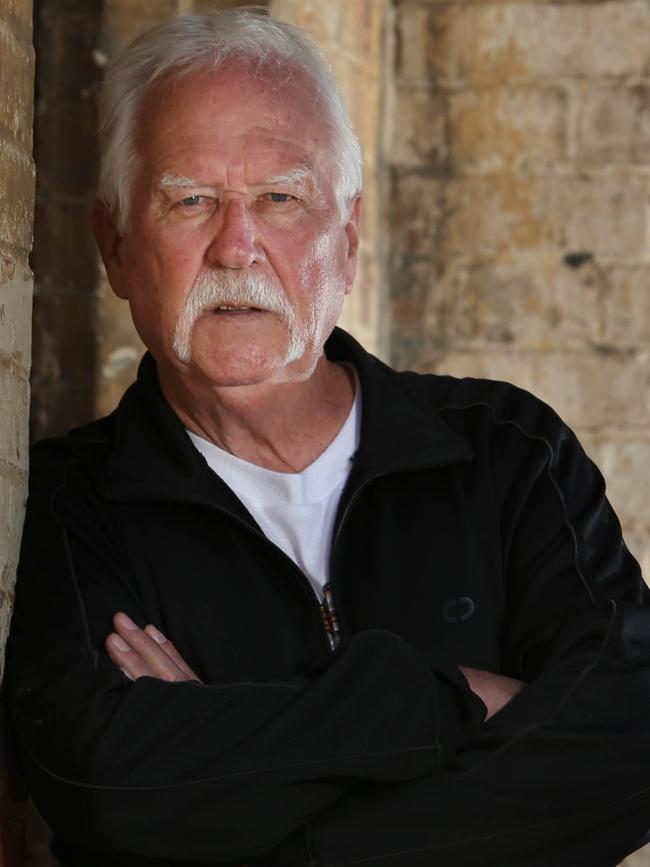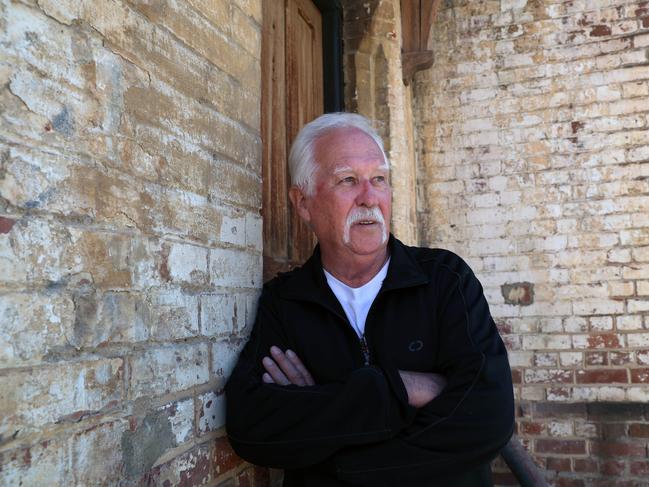Australian prisoners take up American TV show jail slang
Australian jails are changing in a rapid way and are even adopting US TV slang as a breed of standover gangs emerges behind bars. SEE THE LIST OF NEW WORDS
Behind the Scenes
Don't miss out on the headlines from Behind the Scenes. Followed categories will be added to My News.
Australian jails now mirror some of the most infamous US state penitentiaries, with American TV inspiring the adoption of a new breed of standover gangs, culture and even slang in the State’s corrective services system.
That’s according to one of the country’s most infamous long-serving prisoners who says the evolution has caused a worrisome dichotomy in the prison population that authorities are yet to grasp.
Bernie Matthews has been jailed and or escaped from some of Australia’s most notorious prisons since 1969 with the now 70-year-old only rejoining society earlier this year.
Matthews said he was stunned how US prison culture had spread through the system to the point most new inmates could not understand the “culture shock” of terms and references that had come from American TV.
He said since convict days, Australian prisons had a language of their own but like general Australian society Americanisms had now taken over.


“The evolution of Americanisation with its rapper and LA street gang slang coupled
with ‘America’s Hardest Prisons’ and ‘Doing Time’ television programs began to seep
into the prison slang of Australia’s unique subcultural identity,” he said yesterday.
“There is a loss of identity really, the Australiana, the ocker, the old jail slang and the old jail jargon that’s slowly being removed from the prison vocabulary and being replaced by Americanisms.”

He said Australian prison gangs like Frontline Criminals, Muslim Brotherhood, Afghani Crew and Notorious — named after rapper 50 Cent’s hit song — as well as ethnic based groups had segregated prison yards and new inmates were pressured to take a side for their safety.
In recent years, authorities had noted “Prislam” had been spreading notably at Goulburn’s Supermax, Prislam is a form of prison Islam to which prisoners were being pressed to join for their own protection.
Read the new prison terms and jargon survival guide below


BERNIE MATTHEWS: THE NEW PRISON SLANG
IT was the Spring of ’69 when half a million people flocked to a muddy farmland in upstate New York.
The music of Jimi Hendrix, Janis Joplin, Creedence Clearwater Revival, and 35 other bands created a rock concert that sent music trends echoing into the 1970s and beyond. Woodstock closed a chapter of American musical history in 1969.
It was the same year I went to prison for armed robbery.
MORE NEWS
Inside the secret world of a police sniper
Skull found in bushland finally has a face
I came out 11 years later. By then Woodstock and the hippy generation had faded into another dimension as I confronted the new world outside prison walls.
In 2008, I hit another speed hump on the highway of life and returned to prison for another 11 years. During those 22 years behind the walls I observed a dynamic shift in the prison subculture. A shift that spans 50 years in real time.
I have become a dinosaur in the world of criminality and prisons. A successful failure long past my use-by-date. Like Woodstock, I belong in another era. In prison they called me “pop” and gave me a job in the library. The younger generation label me “OG” (old gangster) — an Americanised concept of prison respect that was hijacked from mind-numbing television programs depicting LA street gangs and a fictionalised life behind bars.
The Americanisation of the NSW incarceration process didn’t stop there. Prisons are no longer State penitentiaries, they became correctional centres. The guards are no longer screws or turnkeys. They have been elevated to Custodial Correctional Officers (CCOs). Who they correct remains a mystery because the recidivist rate continues to escalate despite the name changing semantic somersault. And of course prisoners are no longer prisoners. They are now inmates.
Prison slang is unique to all incarceration processes and has definitive meanings within those systems. Australian prison slang originated from the transportation of the British convict system and morphed into a combination of Australian and Cockney rhyming slang with that historical background.
The “I suppose” defined a nose on the human anatomy. As did “plates of meat” (feet), “north and south” (mouth), and “mince pies” (eyes). The criminalisation of the rhyming slang can be illustrated by the “lady from Bristol” (pistol), a “tin tank” (bank), the “bugs bunny” (money), “sky rocket” (pocket), “jam jar” (car), a “swinging door” (whore), which becomes “I got a lady from Bristol and hit the tin tank. Put the buggsy in my sky rocket and jumped in the jam jar. Got away clean but spent it all on the local swinging door.”
The progression of time broadened the uniqueness of Australian prison slang. “Half-inched” (pinched) was the process of being arrested. “Scarpered” (a derivative of Scarpa Flow) meant to go, or run to avoid apprehension. This act was synonymous with “hitting the toe” and “doing the bolt”. “The dog and bone” (telephone), “twist and twirl” (girl), the “storm and strife” (wife), were also filtered into the jargon. The advent of the drug culture during the 1970s and 1980s introduced a new wave of prison slang in which “hammer” (short for hammer and tack = smack) became the description for heroin. A “fit” or “spike” described a syringe used for injecting. “Jack and Jills” described another form of addiction to prescription pills.
There were also variations of prison slang across State borders where the “ducks and geese” (police) in NSW became the “grassies” (grasshoppers = coppers) in Queensland. In US prisons Five-O became the American slang for law enforcement, derived from the television series Hawaii Five-O. Hawaii is also the 50th State of the US.

The evolution of Americanisation, with its rapper and LA street gang slang coupled with America’s Hardest Prisons and Doing Time television programs, began to seep into the prison slang of Australia’s unique subcultural identity. The Pepsi Generation of a newer and younger narcissistic prisoner coping with multi-layered drug problems and lacking respect for the “old school” ways adopted the new jargon as their own. This new generation of wannabes fashioned themselves upon what they saw on television, resulting in the Americanisation of the Australian prison system and its unique prison jargon.
There are so many examples, the only one that hasn’t changed is “dog”.
The Australian use of the word “dog” to describe an informer originated from an incident in Oliver Twist by Charles Dickens. The villain in the book, Sykes, was being chased by police through the London backstreets but eluded his pursuers by hiding in a chimney. Sykes had a faithful mongrel dog which the police allowed to run free.
It led them straight to where its master was hiding up the chimney and in that context a dog has always been regarded as something that will give you up within the Australian prison subculture.
This differs greatly from US prison slang in which a dog is regarded as a friend and a “road dog” is when US prisoners walk the yard together in close friendship.
Originally published as Australian prisoners take up American TV show jail slang


